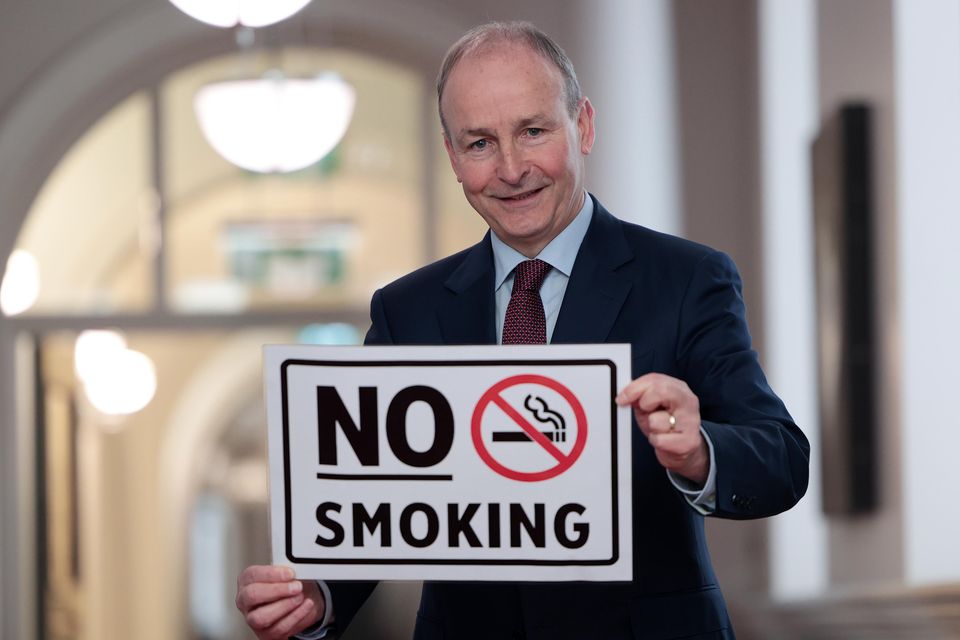Smoking ban celebrates 20th anniversary since introduction as focus now turns to vaping
Tanaiste Micheal Martin said at an event today to mark the 20th anniversary of the workplace smoking ban that there was huge opposition and doubt over whether it would ever succeed, particularly in our hospitality industry. Picture: Robbie Reynolds Photography.
Ireland's workplace smoking ban which has its twentieth anniversary this week, saved more than 3,700 lives in less than four years after its introduction, campaigners said today.
Tánaiste Micheál Martin, who pushed through the legislation as Health Minister in 2004, was joined at Government buildings by representatives of the Irish Heart Foundation, its ASH Council and other organisations involved in its initiation.
The official anniversary of the ban – the first of its kind in the world – falls on Good Friday.
Mr Martin said the landmark public health measure, which outlawed smoking inside every workplace, including pubs and restaurants, represented one of the “most memorable and significant moments” of his political career.
“At the time, there was huge opposition to the smoking ban and doubts over whether it would ever succeed, particularly in our hospitality industry. The decision sparked ferocious debate in what was the first real discussion on public health in Ireland.
“Shortly after its introduction, it came to be viewed as an important protective measure for the health of workers in every sector. It was clear that the general public wanted it.
“Despite its success, we cannot allow ourselves to become complacent when it comes to the war on smoking. Tobacco, along with the new threat of vaping, is continuing to cause huge damage to people in this country.”
Chris Macey, Director of Advocacy and Patient Support with the Irish Heart Foundation, described the ban as “one of the most important pieces of legislation” ever introduced.
“It is estimated that it saved more than 3,700 lives in Ireland in the first three-and-a-half years after its implementation – almost 2.7 lives a day - and resulted in an immediate 26pc reduction in ischaemic heart disease and a 32pc drop in strokes,” said Mr Macey.
“As countries across the world followed suit, the lifesaving impact of the law is beyond measure.”
Mr Macey warned, however, that two decades on, Ireland must pursue “bold and ambitious measures” on tobacco and vape control.
“Tobacco is still responsible for 4,500 deaths a year in Ireland, while an e-cigarette epidemic is responsible for driving nicotine addiction among young people,” he said.
“Smoking rates among teenagers are increasing for the first time in a generation, most likely due to the gateway effect from vaping.”
The Irish Heart Foundation believes the Government now needs to raise the legal age for the sale of tobacco and vaping products from 18 to 21.
Ireland, said Mr Macey, also needs to follow UK proposals which would make it illegal for anyone born after a certain year to buy tobacco products.
This can be achieved by raising the legal age for its sale by one year, every year.
“Ireland can become a tobacco and nicotine-free society, but only bold, ambitious measures can achieve this reality,” he said.
Join the Irish Independent WhatsApp channel
Stay up to date with all the latest news













